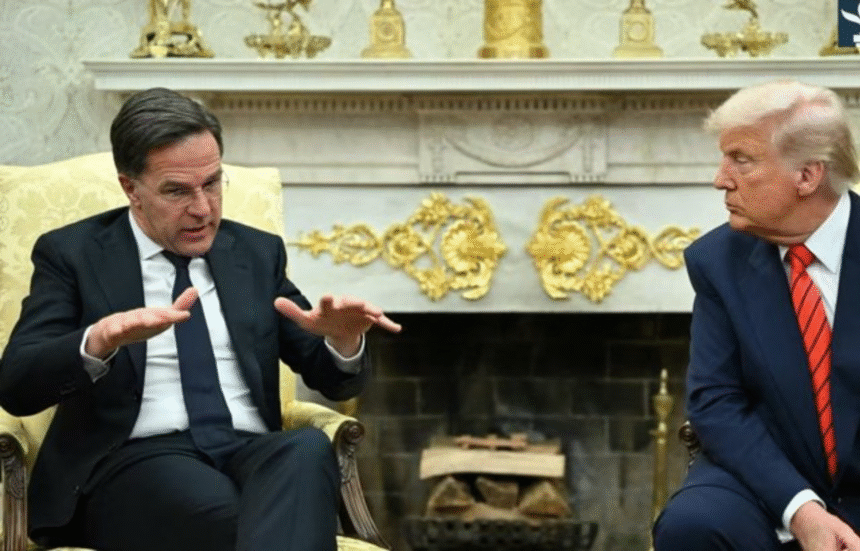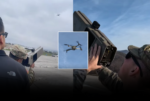Preparations are underway for what is expected to be one of NATO’s most delicate and consequential summits in years a pivotal moment not only for the alliance but also for its new Secretary General, Mark Rutte. Scheduled to take place in late June in The Hague, Rutte’s hometown, the summit will serve as his first major challenge in navigating the complex dynamics of transatlantic security at a time of growing geopolitical uncertainty.
According to NATO officials who spoke to Radio Free Europe/Radio Liberty, Rutte will need to deploy his full range of diplomatic skills to ensure that the summit avoids the pitfalls of past meetings, particularly those involving former and potentially future U.S. President Donald Trump. Recalling the tumultuous 2018 NATO summit in Brussels, where Trump berated European allies over defense spending and even threatened to withdraw the United States from the alliance, officials are working diligently to avoid a repeat scenario. That summit’s tense atmosphere was captured in a widely circulated video showing Trump confronting then-Secretary General Jens Stoltenberg.
Rutte, who was seen as instrumental in calming tensions during that episode, has earned a reputation as one of Europe’s few effective intermediaries with Trump — earning him the informal moniker of “the Trump whisperer.” It was this perceived ability to engage Trump and navigate high-stakes diplomacy that ultimately helped secure his appointment to the alliance’s top job six years later.
Despite the passage of time and significant global developments, Trump is expected to attend this year’s summit with the same uncompromising demand: a significant increase in defense spending by NATO members. While outright threats to leave the alliance are considered unlikely, Trump is expected to push for tangible commitments. To that end, the most concrete outcome of the summit may be a collective pledge by all 32 NATO members to raise defense spending to 5 percent of their gross domestic product — more than double the current 2 percent target. Of that total, 3.5 percent would be earmarked for conventional defense capabilities such as artillery and armaments, while the remaining 1.5 percent would be directed toward cyber defense and logistical infrastructure for rapid troop movement.
In a strategic effort to minimize friction among allies and streamline negotiations, the summit’s format has been scaled back from three days to two. The program, still in development, is expected to feature an official dinner on the first evening followed by two working sessions on the second day. The first session will focus on defense expenditures, while the second will address strengthening NATO’s defense industrial base. The latter will likely include participation from the alliance’s Indo-Pacific partners — Australia, Japan, South Korea, and New Zealand — reflecting growing European interest in military cooperation with East Asian nations.
Another notable departure from past summits will be the brevity of the final declaration, which NATO officials say may consist of just three or four paragraphs. That marks a sharp contrast to recent years, when statements stretched to dozens of paragraphs and covered a broad range of issues. For instance, the Washington declaration in 2024 included 40 paragraphs, while the 2023 Vilnius document reached 90.
Equally striking is the possibility that the final communiqué will omit any direct reference to Russia or Ukraine. This stands in contrast to previous gatherings where Ukraine featured prominently in discussions, particularly on its path toward NATO membership. With Trump signaling strong opposition to any immediate expansion of the alliance, some European officials believe it would be more strategic to exclude the issue altogether than risk a diluted statement.
This ambiguity raises questions about the role of Ukrainian President Volodymyr Zelensky at the summit. While he has been a guest of honor at recent meetings, it remains unclear whether he will be invited to attend in The Hague or participate in a formal NATO–Ukraine Council session. Nevertheless, most NATO diplomats believe his presence is likely. Estonian Foreign Minister Margus Tsahkna recently warned that failing to include Zelensky would be a “major strategic communication mistake,” noting that the media would inevitably focus on his absence.
With expectations high and the stakes even higher, the NATO summit in The Hague will be a defining moment for Mark Rutte. As he seeks to maintain alliance unity, secure increased military commitments, and navigate the complexities of U.S.–Europe relations, the outcome of this gathering may well shape the tone and trajectory of NATO for years to come.







